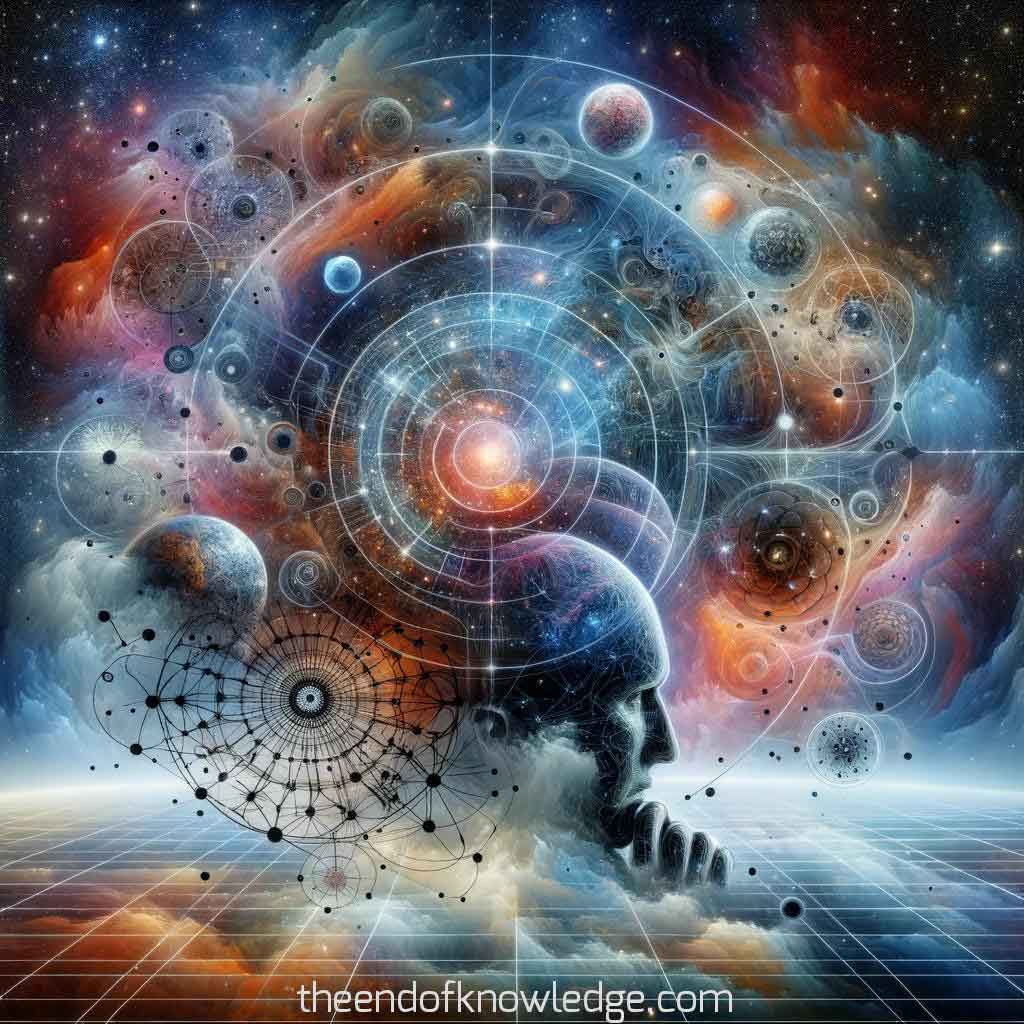 >
>
Concept Graph (using Gemini Ultra + Claude3):
Custom ChatGPT resume of the OpenAI Whisper transcription:
1.- Incompatibility of Consciousness with Scientific Worldview: Philip Goff opens the discussion by expressing his belief that our official scientific worldview does not align with the reality of consciousness.
2.- Simulation Theory and Consciousness: The conversation touches on the idea of living in a simulated reality like the Matrix, exploring how this relates to consciousness.
3.- Panpsychism Explained: Goff is a panpsychist, meaning he believes consciousness is a fundamental and ubiquitous feature of the physical world.
4.- Qualitative Nature of Consciousness: The interview delves into the qualitative, rather than quantitative, nature of consciousness, highlighting its unique characteristics compared to other scientific subjects.
5.- Challenges in Studying Consciousness: A significant challenge in the science of consciousness is its lack of public observability, making it distinct from other scientific fields.
6.- Consciousness and the Scientific Method: The conversation suggests the need for a more expansive conception of the scientific method to fully incorporate the study of consciousness.
7.- Contrast with Daniel Dennett's Views: Goff contrasts his views with those of Daniel Dennett, who believes consciousness is not empirically verifiable and thus does not exist in the way most people conceive it.
8.- Panpsychism vs. Materialism: The discussion compares panpsychism and materialism, with Goff arguing that consciousness is fundamental to physical reality, unlike the materialist view that reduces it to physical processes.
9.- Consciousness in Non-Human Animals: Goff argues that consciousness is not exclusive to humans and is present in animals, albeit in a different complexity and form.
10.- Role of Human Uniqueness in Panpsychism: While acknowledging the continuity of human consciousness with the rest of the universe, Goff highlights human uniqueness in reflecting on experience and responding to reasons.
11.- The Hard Problem of Consciousness: The interview addresses David Chalmers' concept of the "hard problem of consciousness," focusing on why and how physical processing gives rise to subjective experience.
12.- Influence of Bertrand Russell and Arthur Eddington: Goff draws on the work of Russell and Eddington, who proposed that physics only provides knowledge of the structure of matter, not its intrinsic nature, which Goff suggests could be consciousness.
13.- Physics and Consciousness: The discussion emphasizes that physics describes the behavior of matter but does not address the intrinsic nature of matter, where consciousness might play a fundamental role.
14.- Galileo's Role in the Science of Consciousness: Goff highlights Galileo's contribution to the separation of consciousness from the domain of science, marking the beginning of modern science's focus on quantitative over qualitative aspects.
15.- The Double-Aspect Theory of Information: Goff introduces the double-aspect theory of information, positing that physical science reveals only one aspect of reality, while consciousness represents another.
16.- Quantum Mechanics and Consciousness: The conversation touches on quantum mechanics, questioning whether it might provide insights into consciousness due to its fundamental and mysterious nature.
17.- Panpsychism's Reception in the Scientific Community: Goff discusses the mixed reactions to panpsychism in the scientific community, noting both skepticism and growing interest.
18.- Artificial Intelligence and Consciousness: The interview explores the possibility of artificial intelligence being conscious, with Goff emphasizing the difference between intelligence and consciousness.
19.- Ethical Implications of Panpsychism: The ethical implications of panpsychism are considered, particularly regarding the treatment of animals and the environment, as they are believed to possess some form of consciousness.
20.- Limits of Human Understanding: There is an acknowledgment of the potential limits of human understanding when it comes to fully grasping the nature of consciousness.
21.- Difference between Consciousness and Intelligence: The interview distinguishes between consciousness (subjective experience) and intelligence (ability to solve complex problems), emphasizing that AI might be intelligent but not necessarily conscious.
22.- Philosophy's Role in Understanding Consciousness: Goff stresses the importance of philosophy in exploring consciousness, arguing that it provides a framework to interpret scientific data and address questions science can't.
23.- Physicalism and Its Challenges: The discussion touches on physicalism, the belief that everything is physical, and its challenges in accounting for consciousness.
24.- The Binding Problem: The conversation explores the binding problem in consciousness studies, questioning how disparate neural activities are unified into a single conscious experience.
25.- Subjective and Objective Reality: The dialogue examines the relationship between subjective experiences of consciousness and objective reality, pondering how subjective consciousness fits into the objective world.
26.- Consciousness in the Universe: Goff discusses the idea that consciousness could be a fundamental aspect of the universe, rather than a byproduct of certain physical processes.
27.- Materialism's Limitations: The limitations of materialism in explaining consciousness are highlighted, suggesting that consciousness might not be fully explainable in purely physical terms.
28.- The Nature of Time and Consciousness: The interview delves into the concept of time and its relationship with consciousness, considering whether our understanding of time is influenced by the nature of conscious experience.
29.- The Future of Consciousness Studies: The future of consciousness studies is discussed, including the potential for new scientific paradigms and interdisciplinary approaches to better understand consciousness.
30.- Personal Reflections on Consciousness: Goff shares his personal reflections on the study of consciousness, including its philosophical and existential implications.
Interview byLex Fridman| Custom GPT and Knowledge Vault built byDavid Vivancos 2024